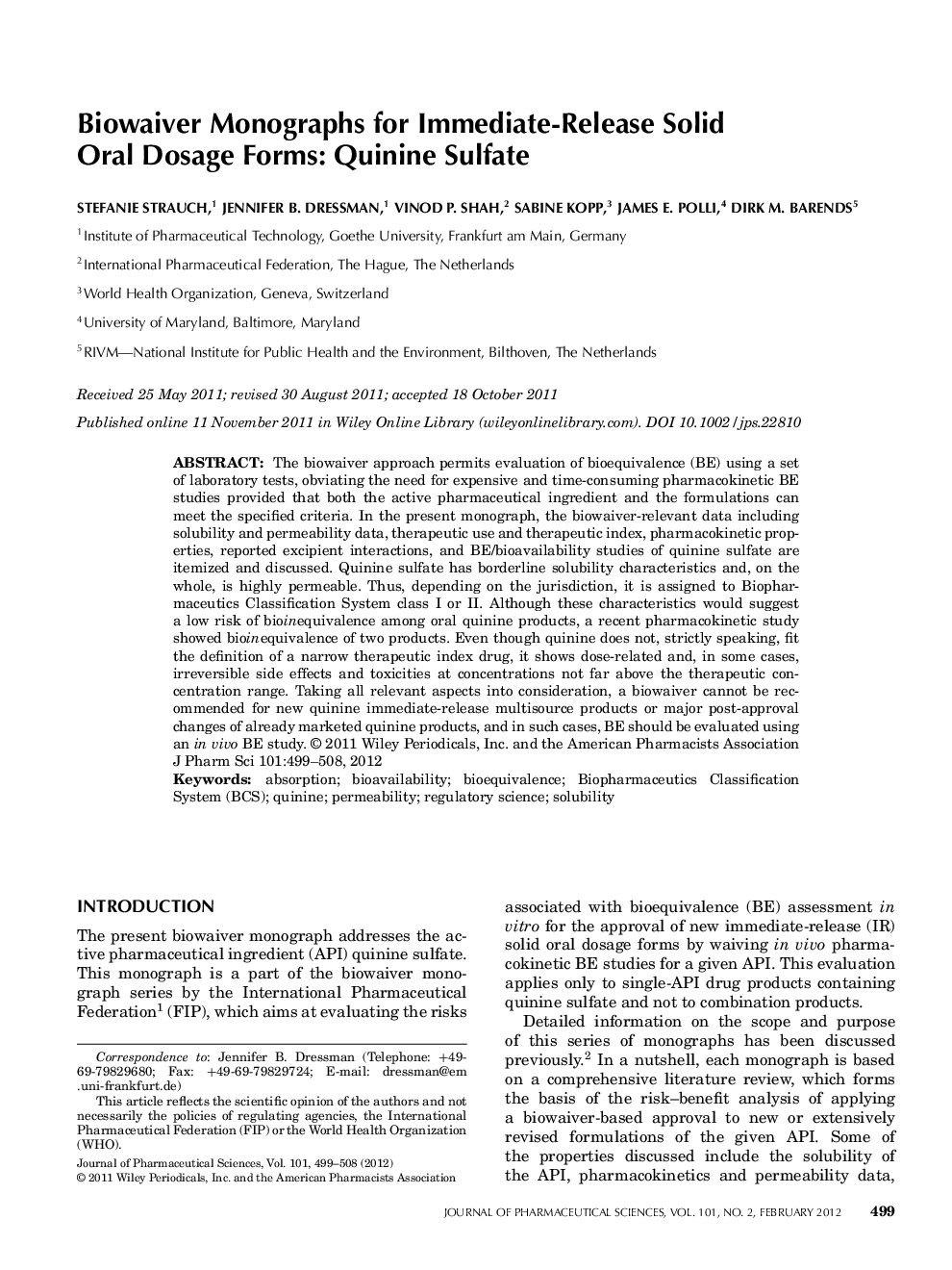| Article ID | Journal | Published Year | Pages | File Type |
|---|---|---|---|---|
| 2485230 | Journal of Pharmaceutical Sciences | 2012 | 10 Pages |
Abstract
The biowaiver approach permits evaluation of bioequivalence (BE) using a set of laboratory tests, obviating the need for expensive and time-consuming pharmacokinetic BE studies provided that both the active pharmaceutical ingredient and the formulations can meet the specified criteria. In the present monograph, the biowaiver-relevant data including solubility and permeability data, therapeutic use and therapeutic index, pharmacokinetic properties, reported excipient interactions, and BE/bioavailability studies of quinine sulfate are itemized and discussed. Quinine sulfate has borderline solubility characteristics and, on the whole, is highly permeable. Thus, depending on the jurisdiction, it is assigned to Biopharmaceutics Classification System class I or II. Although these characteristics would suggest a low risk of bioinequivalence among oral quinine products, a recent pharmacokinetic study showed bioinequivalence of two products. Even though quinine does not, strictly speaking, fit the definition of a narrow therapeutic index drug, it shows dose-related and, in some cases, irreversible side effects and toxicities at concentrations not far above the therapeutic concentration range. Taking all relevant aspects into consideration, a biowaiver cannot be recommended for new quinine immediate-release multisource products or major post-approval changes of already marketed quinine products, and in such cases, BE should be evaluated using an in vivo BE study. © 2011 Wiley Periodicals, Inc. and the American Pharmacists Association.
Keywords
Related Topics
Health Sciences
Pharmacology, Toxicology and Pharmaceutical Science
Drug Discovery
Authors
Stefanie Strauch, Jennifer B. Dressman, Vinod P. Shah, Sabine Kopp, James E. Polli, Dirk M. Barends,
